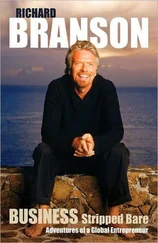As you pursue your own entrepreneurial vision, take heart if building your company involves overcoming obstacles and ignoring your critics. Pursue your passion; admit it when you encounter something you are not good at, and either delegate it or find a way around it (even Jobs hired great professionals to lead public relations efforts, and he famously formed alliances with Apple’s competitors, IBM and Microsoft); and when things go wrong, pick yourself up and keep going. This is an adventure that takes courage and conviction.
Throughout his life, Steve Jobs encouraged everyone he worked with as well as his customers to ‘think different’. And while you might take issue with the grammar, it is certainly fundamental advice that every entrepreneur should take to heart.
FIRST IMPRESSIONS ARE HUGE
But don’t blow it with the second
My mother used to urge me to put on clean socks and underwear every day, reminding me, ‘You never know if you’re going to get hit by a bus.’
The implication was clearly that she didn’t want to suffer the humiliation of hearing an emergency room nurse say, ‘Doctor, quick, take a look at this. I don’t know when this boy last changed his underwear!’
This shows the importance of making a good second impression. Setting aside the ‘impression’ that the bus would make on me, the medical staff would have their first impression of me upon my arrival at the hospital, and the second impression during the examination, as they learned more about my personal hygiene.
In business, creating a favourable impression at the first point of customer contact is an absolute imperative.
Despite the fact that everyone knows this, many companies still only manage to do a mediocre job at best.
But what clearly isn’t widely understood is that in a world where so many transactions are conducted online, the customer’s second impression of the brand can be even more important than their first.
The second interaction an online customer has with your business usually involves something that has gone wrong – they’re having trouble using the product or service. Handled correctly, this is a situation in which a company can create a very positive impression. Sadly, it’s where things often go terribly wrong.
One of the biggest mistakes I see on an alarmingly regular basis is companies burying their customer service phone numbers in their websites’ deepest, darkest nooks and crannies. Clicking the ‘Contact Us’ tab is just the first step in a tricky game of ‘find our phone number if you can’. Surely customers are supposed to have their ‘Aha!’ moment when they’re using your product, not when they finally succeed in unearthing the company’s contact information!
Most callers to customer helplines around the world are greeted with some variation of what’s surely the most absurd statement ever recorded: ‘Your business is very important to us. Please continue to hold.’ Some companies even make it worse by adding friendly snippets like ‘Your anticipated wait time is twenty-three minutes’. But the subliminal intent of this message is ‘We are not really interested in retaining your business if it means we have to staff up to serve people like you. So use our website, will you?’
If some customers have the staying power to wait until a real person picks up the phone, the aggravation is far from over. Before customers are granted an audience with a real person, they usually have to key in their account numbers at least once. But when a representative finally picks up the phone, the most common greeting is: ‘Can you please give me your full name and thirty-seven-digit account number?’
Websites are not designed to avoid such irritations either, and often make negative second impressions. Take the account registration process, for instance. It’s sensible for an online banking service to require users to choose a secure password and user name, but this step seems ridiculous to someone who is trying to buy a pair of socks. While the registration process is an important tool in building mailing lists, if it frustrates your customers, what’s the point?
Most airlines (Virgin included) provide passengers with the option of checking in via a self-service kiosk – the company’s chance to make a good second impression, since the first contact is usually the online booking process. This device will check passports, issue boarding passes and in some cases even print out baggage tags. If the process goes well, it makes a reasonably good impression; not only do these devices (digitally) greet customers by name, but they’re seldom impatient or surly. But, still, it’s best always to have human help on hand to assist customers when the process goes awry. And with all the complexities of national and international flights, you can be sure this will happen!
In the hotel industry, the check-in process remains the exclusive domain of human beings, with uniformed receptionists responsible for a customer’s second impression of a brand. I have never worked out exactly why, but most luxury hotel chains have bested the airline industry when it comes to doing this well. It’s no coincidence that the term ‘hospitality industry’ is understood to encompass hotels and restaurants, but airlines are conspicuously excluded.
Managers and executives who want their companies to make positive first and second impressions must learn to balance the web’s labour-saving efficiencies with real human beings who can help when things go wrong. One reality check I perform on a regular basis is to test-drive our own websites to see how long it takes me to find that elusive customer help number. Try it, and if you have to dig through more than a couple of screens, then maybe the website design needs to be rethought.
Consider the customer relations value in putting a simple no-nonsense big ‘Need Help?’ number on your homepage. By making that human help too hard to find, to paraphrase the title of one of my books, you’re taking a risk that the customer might say, ‘Screw it, I won’t do it.’
End the war on drugs
People seem to have forgotten that, decades ago, crime generally wasn’t a good way to make a living: it was after the drug war began that pop culture started to portray drug dealing as a route from poverty to riches. But only a few actually become wealthy, and as Freakonomics authors Stephen J. Dubner and Steven D. Levitt showed in their 2005 book, many street dealers live with a parent and take part-time jobs to make ends meet. Other studies have shown that many of these exploited workers are hard-core addicts themselves.
To cut off the flow of money to the top criminals, all we have to do is call a halt to the drug war and decriminalise the use of illegal substances.
The war on drugs funnels money to exactly the wrong people: when public officials pursue a tough-on-crime agenda, narcotics dealers profit as drug prices go up, while demand remains the same. This is an industry that earns a staggering $300 billion each year, and, with that sort of money at stake, criminals will do anything to outsmart the law: move their drug manufacturing operations to countries where authorities can’t pursue them; buy heavy weaponry (as in Mexico); infiltrate government agencies (as has happened in many nations, from Peru and Bolivia to part of West Africa); kidnap and intimidate police, politicians and civilians. Criminals get rich while ordinary people pay the price – both in terms of higher taxes and, sometimes, with their lives.
In a world where the drugs problem only gets worse – an estimate by the UN shows that consumption of opiates worldwide, including heroin, increased by 35 per cent between 1998 and 2008 – it’s difficult to imagine criminals reduced to looking for proper jobs. In some Latin American countries the drug cartels are challenging the authority of the government – some of their militias are better equipped than the military, and the gangs have been known to provide communities with security and basic social assistance. In Afghanistan, a fair proportion of the money flowing to the Taliban comes from the sale of opiates. The US Drug Enforcement Administration says that al-Qaeda agents in North Africa, West Africa and Europe have funded their operations through the drug trade.
Читать дальше












